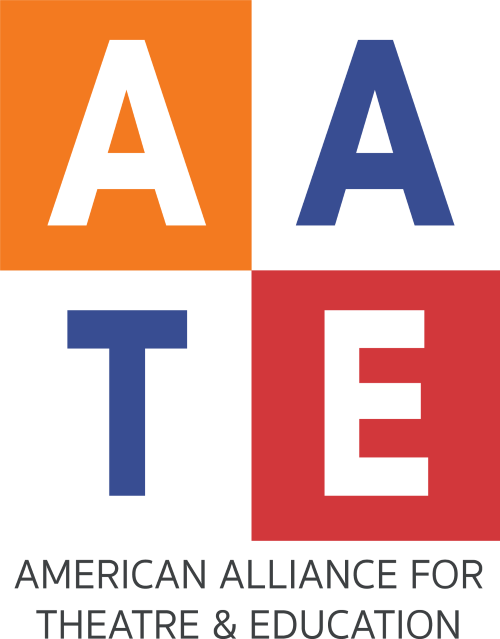- Home
- About AATE
- Membership
- Programs and Events
- Resources
- Networking
- Support AATE
- Online Store
- Contact Us
VIRTUAL Session Block 2Friday, July 29th, 9-10am (EDT)
All of the Session Blocks will be hosted on Zoom Meeting. You will be sent an email, 24 hours prior to the next day's events, which will contain all of the log-on details for each event. As in an in-person Conference, please feel free to select whichever workshop you would like to attend in the moment. Network: College/University Consent, Body Autonomy, and Intimacy in Educational Spaces Session Chair: Francesca Betancourt In this workshop, we will discuss and define intimacy direction as a field and the history of why it exists. I will provide concrete tools for theatre and arts educators to develop a culture of consent, respect, care, trust, comfort, intersectionality, and agency in your rehearsal rooms and classrooms. I will also advise on some best practices, both logistically and artistically, when it comes to sexual, romantic, explicit, violent, traumatic, or otherwise intimate material onstage. Network: K-8 Unlocking Our Stories: Interview Theatre in the Bilingual Classroom Session Chair: Melanie Harrison Many contemporary shows, such as Fires in the Mirror by Anna Deavere Smith and Come From Away by Irene Sankoff and David Hein, draw on interview-based investigative techniques. It is easy for an adult who views one of these beloved productions to make connections between interviewing and storytelling, but how can we introduce the power of interviewing to our young drama students? Participants in this workshop will move through a remote learning experience that was developed in the throes of 2020 when staff and students alike were craving connection across virtual spaces. This process primed students to interview selected teachers about their “past, present, and future and to turn excerpts from those interviews into original performances. The facilitator’s work is inspired by techniques studied with Joe Salvatore and NYU’s Verbatim Performance Lab as well as techniques practically applied in public school classrooms. The facilitator will guide participants through personal storytelling, inquiry coding, observation, and mirroring. Between exercises, participants will reflect on questions of accessibility and student-centeredness. A video performance created by a fifth-grade bilingual class will be showcased and discussed. At the end of the workshop, participants will brainstorm potential interview theatre practices, processes, and projects to take into their own classroom contexts. Network: Professional Theatre Theater Accessibility and Language Session Chair: Joel Snyder, PhD Other Presenter(s): Maria V. Diaz Audio Description makes visual images accessible for people who are blind or have low vision. It's a kind of audiovisual translation: using words that are succinct, vivid, and imaginative, describers convey the visual image from the arts to a significant segment of the population (more than 32 million Americans experience significant vision loss - American Foundation for the Blind, 2008). In the United States, the Dicapta Foundation is the leading producer of Spanish audio description for the arts and media. The proposed workshop would be designed to support young thespians in the study and practice of audio description--in English and/or Spanish--for student presentations. This audio description workshop would provide an overview of the “Fundamentals of Audio Description†(developed by Dr. Snyder) and access awareness, particularly with respect to people who are blind or have low vision. It should be noted that audio description as an ongoing service began in 1981 at Arena Stage in Washington, DC. Dr. Maria Diaz, the founder of the Dicapta Foundation, would focus on how Spanish AD is developed for Spanish-speaking audiences who are blind or have low vision. |
